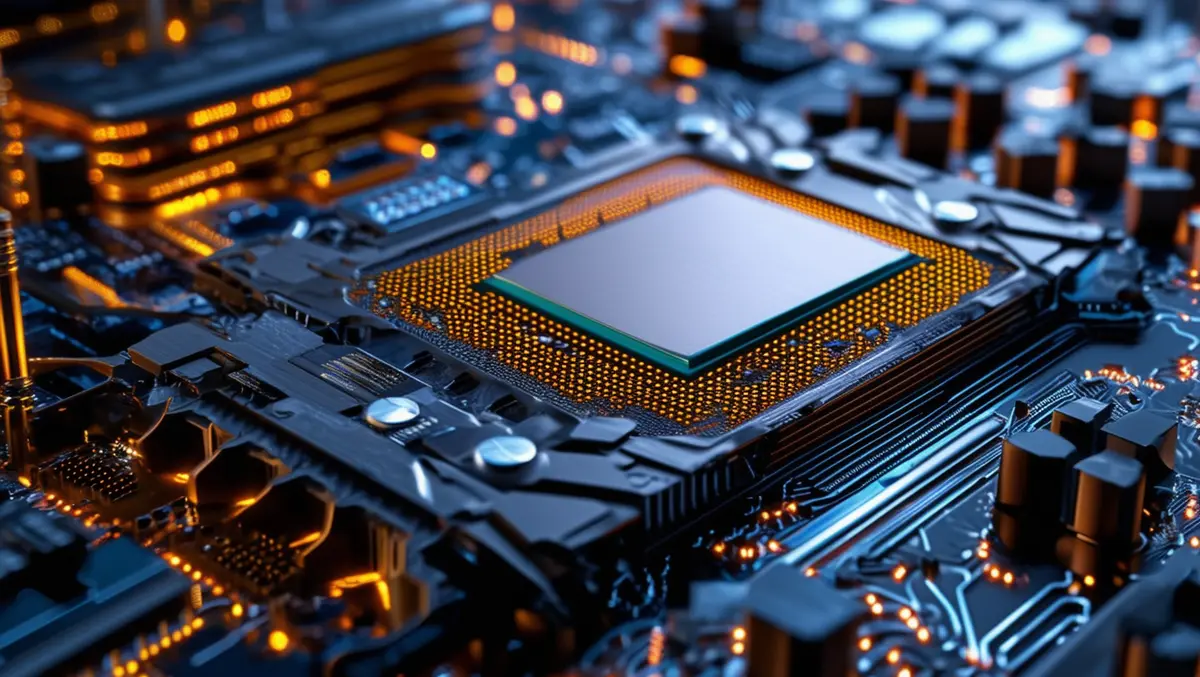
Intel unveils Xeon 6, Gaudi 3 AI accelerators with partners
Intel has announced the launch of its Xeon 6 with Performance-cores (P-cores) and Gaudi 3 AI accelerators.
These new products have been introduced with the company's strategy to enhance artificial intelligence (AI) systems within the industry. The new offerings promise notable performance improvements, competitive pricing, and high power efficiency.
The launch of Intel's new products is supported by several industry partners, including Dell Technologies, IBM, Supermicro and Google. These partnerships aim to provide enterprises with advanced infrastructure that is both cost-effective and readily available for rapid AI development and deployment.
Justin Hotard, Intel's executive vice president and general manager of the Data Center and Artificial Intelligence Group, highlighted the market's need for diverse hardware, software, and developer tools to support AI infrastructure.
"Demand for AI is leading to a massive transformation in the data centre, and the industry is asking for choice in hardware, software and developer tools," he said.
"With our launch of Xeon 6 with P-cores and Gaudi 3 AI accelerators, Intel is enabling an open ecosystem that allows our customers to implement all of their workloads with greater performance, efficiency and security."
The Xeon 6 processors are designed to manage compute-intensive workloads more efficiently, delivering twice the performance of their predecessors. The processors feature increased core counts, double the memory bandwidth, and integrated AI acceleration capabilities. These advancements cater to performance demands across edge, data centre, and cloud environments.
The Gaudi 3 AI accelerators are optimised for large-scale generative AI applications. They include 64 Tensor processor cores (TPCs) and eight matrix multiplication engines (MMEs) to enhance deep neural network computations.
The accelerators also feature 128 gigabytes of HBM2e memory and 24 200 Gigabit Ethernet ports for scalable networking. Compatibility with the PyTorch framework and advanced Hugging Face transformer and diffuser models is also provided.
Intel has collaborated with IBM to deploy Gaudi 3 AI accelerators as a service on IBM Cloud. This collaboration aims to lower the total cost of ownership while enhancing AI performance.
Intel's x86 infrastructure and open ecosystem support enterprises in building high-value AI systems. The company reports that 73% of GPU-accelerated servers use Intel Xeon as the host CPU. Collaborations with OEMs, such as Dell Technologies and Supermicro, are also in place to develop co-engineered systems tailored for AI deployments. Dell Technologies is currently working on RAG-based solutions leveraging Gaudi 3 and Xeon 6.
Intel addresses the challenges of transitioning generative AI solutions from prototypes to production-ready systems through co-engineering efforts.
These efforts focus on real-time monitoring, error handling, logging, security, and scalability. Solutions based on the Open Platform Enterprise AI (OPEA) platform integrate OPEA-based microservices into a scalable RAG system optimized for Xeon and Gaudi AI systems.
The Intel Tiber portfolio aims to resolve challenges related to access, cost, complexity, security, efficiency, and scalability across AI, cloud, and edge environments. The Intel Tiber Developer Cloud is now providing preview systems of Intel Xeon 6 for evaluation and testing.
Select customers will also gain early access to Intel Gaudi 3 for validating AI model deployments, with Gaudi 3 clusters to be available next quarter for large-scale production deployments.
New service offerings include SeekrFlow, an AI platform from Seekr designed to develop trusted AI applications. The latest updates feature Intel Gaudi software's newest release and Jupyter notebooks equipped with PyTorch 2.4 and Intel oneAPI and AI tools 2024.2, which include new AI acceleration capabilities and support for Xeon 6 processors.


